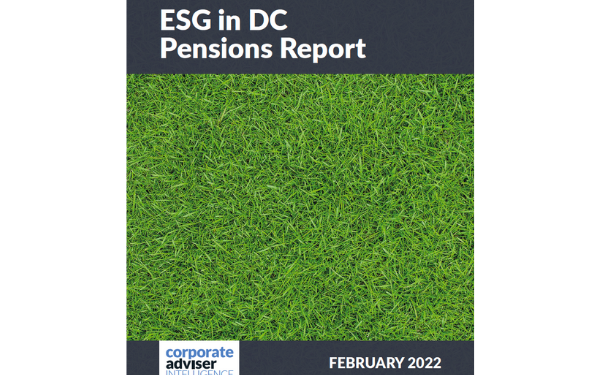Net-zero targets for DC pension providers are now universal with all mainstream DC pension providers now having 2050 or earlier targets for decarbonising their default funds.
CLICK HERE TO REQUEST YOUR COPY
The rapid and widespread uptake of net-zero targets by pension providers in 2021 marks a distinct change in the pensions landscape. Prior to 2021 only The People’s Pension, which set its net zero target in 2019, and Nest and Standard Life (2020) had such targets.
Figures from Corporate Adviser’s 2022 ESG in DC Pensions Report show asset managers and providers in the UK DC sector are affiliated to or members of at least 229 separate ESG-related coalitions, affiliations, campaigns, standard-setters and other initiatives, a 71 per cent increase on last year’s figure. The massive number of green-badged organisations to which asset managers and pension providers can affiliate to highlights the complexity end users face in avoiding ‘greenwashing’.
The research – which is based on data collected by Corporate Adviser Intelligence from 16 asset managers active in the DC sector and 21 master trusts and contract-based workplace DC pension providers – found filters and screens are the strategy most widely used by DC asset managers. More than £2 trillion is invested on this basis globally by the managers in the survey, representing 12.2 per cent of assets
Controversial weapons is the most widespread exclusion from DC defaults, excluded by almost all providers from at least part of their fund. Three quarters of providers exclude UN Global Compact violators and a majority exclude thermal tar and coal sands investments.
Eleven out of 21 providers now exclude tobacco, up from 9 a year ago.
The research found 19 of the 21 main pension providers surveyed deploy ESG tilts or screening overlays on their default. Three years ago, just five master trust defaults did.
Half of DC pension providers use ‘best-in-class’ or positive stock selection ESG strategies for at least part of their default portfolio Impact investments are beginning to appear in DC defaults, with the Aon Mastertrust having a 10 per cent impact holding. Cushon is targeting 100 per cent impact investments inthe future.
Cushon is the only provider currently offsetting portfolio emissions. Now: Pensions and Royal London are using offsets for company operation net-zero targets. Several providers say they are exploring future use of offsets
State Street Global Advisors voted on more shareholder resolutions than any other asset manager, voting on 176,680 resolutions. BlackRock voted on 161,243 separate resolutions at over 17,000 company meetings.
Hermes voted against the board at 64 per cent of all meetings it attended, while BlackRock voted against at 42 per cent.
Other dissenting voices included Newton Investment – which voted against 44 per cent of all management recommendations, Aviva (25 per cent) and LGIM (18.4 per cent).
Corporate Adviser editor John Greenwood said: “Embracing environmental, social and governance (ESG) investing has become one of the central challenges of defined contribution pensions.
“ESG has become so prevalent in the pensions conversation over the last two years that one could be forgiven for thinking that it’s a case of ‘job done’. Yet in reality the industry is at the very beginning of a very long journey.
“Climate change and decarbonisation is obviously the highest profile ESG issue on the agenda, yet new factors are emerging all the time. The pandemic has highlighted the importance of the ‘S’ in ESG, as people concerns have been brought into sharp focus.
“Other factors, some that we can’t even conceive of yet, will emerge in the future as ESG considerations. ESG investing will continue to be an evolving subject as society and its values change with time.”
Corporate adviser deputy editor, and lead author on the report, Emma Simon says: “This report provides a clear picture of which ESG strategies are now being used by all major workplace pension providers.
“With such a high premium being placed on ESG credentials it is important that industry stakeholders understand what providers and asset managers actually mean when they make representations about the way they invest. This report seeks to clarify areas of confusion, look under the bonnet of provider and asset manager propositions and benchmark ESG commitments that have been made.
“This is an extremely difficult task – there is still no universally accepted definition of what amounts to an ESG fund or an ESG investment, and providers and stakeholders measure the way they implement ESG in different ways. However, in this report we have attempted to make like-for-like comparisons on a number of metrics we believe will be useful to industry participants and those endeavouring to understand the changes being made to workplace pensions on behalf of DC scheme members.
“The challenge for the future will be monitoring how well progress is made towards these stated ESG goals, while also protecting member returns.”





